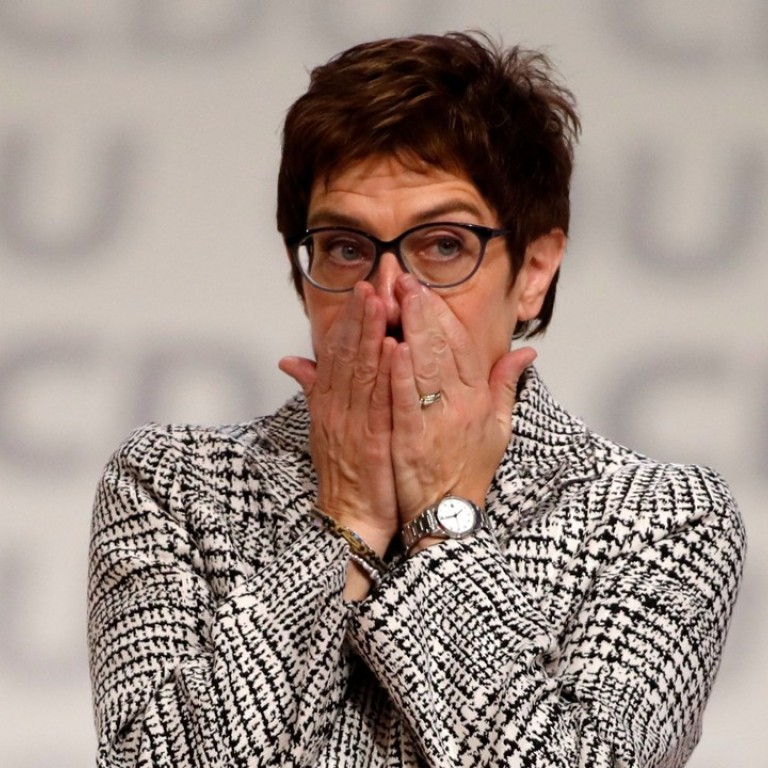
Germany’s likely new leader will have to walk a tightrope
- Annegret Kramp-Karrenbauer, who narrowly won the vote to become leader of the ruling Christian Democratic Union party, will have to balance the interests of centrists with those who lean to the far right
The leader of Germany has more than a nation to think about; an economy so powerful brings with it influence and obligations that extend across Europe and the world. Annegret Kramp-Karrenbauer, chosen to replace Chancellor Angela Merkel as head of the ruling Christian Democratic Union party, has to be mindful of that as she takes stock of her new position. The slim margin with which she won the vote reflects disunity among members and the centrist coalition government is far from stable. Calming political rifts is her immediate challenge, but with the likelihood that she will face the electorate in national polls in 2021, she also has to combat the threats posed by right-wing radicals and populists.
Kramp-Karrenbauer, popularly known as AKK, has been at pains to distance herself from the chancellor. She refutes the German media tag of “mini-Merkel” and has grounds to do so beyond the fact that she has children; on the controversial issues of migration and same-sex marriage, she is more conservative. Distancing herself makes sense given that she needs to build a stronger support base to create unity. Her run-off win against rival Friedrich Merz, who had wanted to take the party in a new pro-market direction and lure far-right voters, was a mere 517 votes to 482.
A growing number of Germans and people in democracies have lost faith in centrist politics. Already among European Union nations, it has led to governments with far right-wing credentials taking power in Italy, Hungary and Poland and their leaders are trying to derail the grouping. The German incarnation is represented in politics by the anti-immigration Alternative For Germany party, which was so successful in federal elections last year that it is the main opposition and its views have been blamed for increasing racist violence.
How Kramp-Karrenbauer intends to mend the rift in her party between those who backed her centrism and the desire for greater conservatism is unclear. Merkel is serving her last term as chancellor and her successor needs to also be a decisive leader for Germany and a strong voice for Europe. AKK has the right credentials; she has led governments at local and state levels and having risen through the ranks of her party, knows its inner workings. Her challenges are many, though, and with them comes the risk that the coalition with the conservative left-wing Social Democrats, in free-fall in elections, could collapse. Merkel stepped aside for good reason; members want a change. AKK is no clone, but she has much work to do to convince Germans that conservative politics can continue to ensure prosperity and stability. There will have to be compromise on migration and business reforms, but it is essential that she also vows to strive for and protect European unity.

